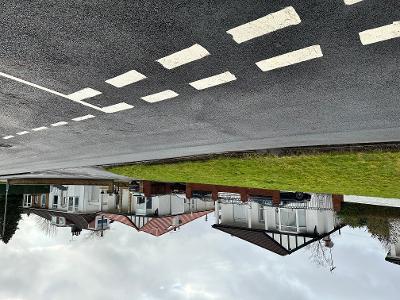99.8% of potholes in East Renfrewshire repaired within target time
We've repaired almost 12,500 potholes in its target timeframe over the past two years.

Published: 30 January 2024
In 2022/23, we've repaired 7,161 potholes, with 98.4% of repairs completed within target timescales.
And already this financial year, 5,282 potholes have been repaired, with the number fixed by the target response time increasing to 99.8%.
The number of roads in East Renfrewshire grows each year with the adoption of new roads, mainly serving new housing developments.
Potholes are repaired as part of a strategy recommended by the Scottish Collaboration of Transportation Specialists (SCOTS) and the 'Well Managed Highway Infrastructure' Code of Practice produced by the UK Roads Leadership Group (UKRLG).
This approach allows us to prioritise its response to safety defect repairs. Target response times are dependent upon the degree of risk posed by the pothole. Factors include depth, surface area, location within the road network and the usage of the road or pavement.
Road inspectors are trained to carry out a risk analysis of defects identified during inspections or reported by customers which then determines which response time is allocated to the repair. All first priority defects have a target response time of 24 hours.
We've dedicated pothole repair teams working almost every day, with three teams regularly working during the winter months when pothole numbers increase due to the effects of the weather.
Teams repair potholes on a first time permanent basis whenever possible however on rare occasions when poor weather conditions or other problems arise the timescale required to carry out a permanent repair can increase and it may be essential in the interests of road safety to carry out a quick fix temporary repair.
Regular routine safety inspections are also carried out in accordance with the Road Asset Safety Inspection Strategy, and planned safety inspection frequencies are based on the road and pavement hierarchy.
Alongside this, in its 2019/20 budget, we've committed an additional £15m capital investment for roads infrastructure enhancements over the following five years.
Last year, we outlined plans to continue the extra capital investment which was due to finish this year. The improvement programme will extend for a further five years, starting in 2024/25 and invest £3.5m each year - a total of £17.5m - on upgrading additional roads and pavements.
The 2023/24 roads maintenance programme is using the additional £3million of resources alongside other annual budgets and the we're on track to improve the condition of 38 roads and 13 pavements throughout the area by the end of the financial year. Around £100k of this additional capital budget was allocated to large scale road patching repairs.
Councillor Danny Devlin, Convener for Environment and Housing, said: 'The Council's Road Safety Inspection Strategy encourages a consistent approach by using a system that recommends the frequency of inspections as well as the method of assessing, recording and responding to road defects. It's very encouraging to hear that this system is working well and 99.8% of pothole repairs have been completed within their targets so far this year. Of course, during the winter months cold weather exacerbates road deterioration, and this leads to more frequent and severe potholes. The Council is continuing to improve its road network year-on-year so I'd encourage residents to report potholes so they can be repaired as soon as resources allow.'
Report potholes on our website or phone 0141 577 3001 during office hours. Out of hours emergency faults can be reported on the Roads and Lighting Fault (RALF) line by phoning 0800 373 635.
The Road Safety Inspection Strategy is also available to read on this webpage.

